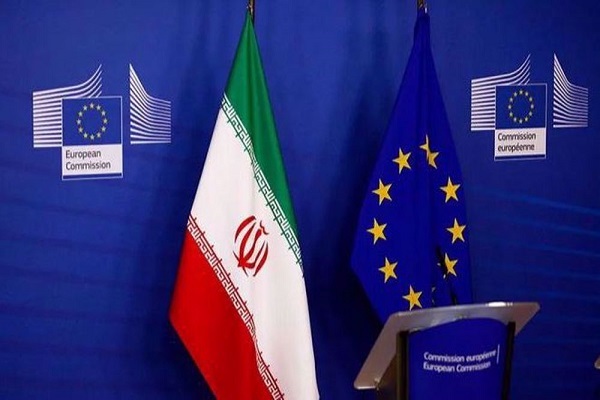
TABNAK, Jan 13: Kazem Gharibabadi, Iran's deputy foreign minister for legal and international affairs, said the Iranian delegation held another round of “candid” discussions with political directors of the three European countries, also known as the E3 on Friday.
He added that the sides "discussed and took stock of recent bilateral, regional and international developments, particularly nuclear and sanctions lifting issues."
“We are firmly committed to pursue the interests of our people, and our preference is the path of dialogue and engagement,” the Iranian diplomat emphasized.
On Thursday, Enrique Mora, Deputy Secretary General of the European External Action Service, held talks in Geneva with Gharibabadi and Majid Takht Ravanchi, Iran’s Deputy Foreign Minister for Political Affairs.
Mora, the EU's second highest-ranking diplomat, said on X that he had a "frank exchange" with Gharibabadi and Takht Ravanchi.
![Iran calls on EU to change ‘self-centered, irresponsible’ behavior as talks begin]()
Earlier on Friday, Gharibabadi wrote on X that the Iranian delegation "had a frank discussion" with Mora on "a variety of issues, including the perspective of nuclear and sanctions lifting negotiations in light of recent developments."
He urged the European Union to change its "self-centered and irresponsible" behavior towards issues and challenges of this continent and international matters.
Earlier, Iranian Foreign Ministry spokesman Esmaeil Baghaei had reaffirmed Iran’s principled stance on interaction and cooperation with other countries based on dignity, wisdom and expediency.
Tensions between Iran and European countries have escalated over the past two years due to European accusations.
European countries claim Iran has supplied ballistic missiles to Russia for use in the Ukraine conflict, an allegation that Tehran has categorically rejected.
Ukrainian President Volodymyr Zelensky has also stated that no such missiles were delivered to Russia.
In a recent action against Tehran, the European troika pushed the adoption of a resolution in the Board of Governors of the International Atomic Energy Agency (IAEA).
The resolution accused Tehran of poor cooperation with the agency and demanded a "comprehensive" report on its nuclear activities by spring 2025.
In response, Iran said it has activated a "series of new and advanced centrifuges."